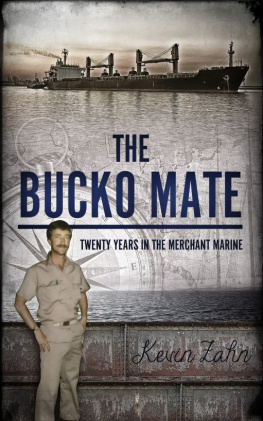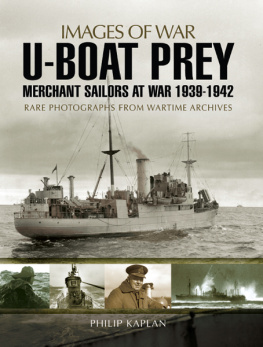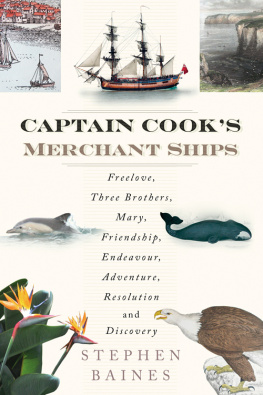CHAPTER I. COLONIAL ADVENTURERS IN LITTLE SHIPS
Table of Contents
The story of American ships and sailors is an epic of blue water which seems singularly remote, almost unreal, to the later generations. A people with a native genius for seafaring won and held a brilliant supremacy through two centuries and then forsook this heritage of theirs. The period of achievement was no more extraordinary than was its swift declension. A maritime race whose topsails flecked every ocean, whose captains courageous from father to son had fought with pike and cannonade to defend the freedom of the seas, turned inland to seek a different destiny and took no more thought for the tall ships and rich cargoes which had earned so much renown for its flag.
Vanished fleets and brave memoriesa chronicle of America which had written its closing chapters before the Civil War! There will be other Yankee merchantmen in times to come, but never days like those when skippers sailed on seas uncharted in quest of ports mysterious and unknown.
The Pilgrim Fathers, driven to the northward of their intended destination in Virginia, landed on the shore of Cape Cod not so much to clear the forest and till the soil as to establish a fishing settlement. Like the other Englishmen who long before 1620 had steered across to harvest the cod on the Grand Bank, they expected to wrest a livelihood mostly from salt water. The convincing argument in favor of Plymouth was that it offered a good harbor for boats and was "a place of profitable fishing." Both pious and amphibious were these pioneers whom the wilderness and the red Indian confined to the water's edge, where they were soon building ships to trade corn for beaver skins with the Kennebec colony.
Even more energetic in taking profit from the sea were the Puritans who came to Massachusetts Bay in 1629, bringing carpenters and shipbuilders with them to hew the pine and oak so close at hand into keelsons, frames, and planking. Two years later, Governor John Winthrop launched his thirty-ton sloop Blessing of the Bay, and sent her to open "friendly commercial relations" with the Dutch of Manhattan. Brisk though the traffic was in furs and wampum, these mariners of Boston and Salem were not content to voyage coastwise. Offshore fishing made skilled, adventurous seamen of them, and what they caught with hook and line, when dried and salted, was readily exchanged for other merchandise in Bermuda, Barbados, and Europe.
A vessel was a community venture, and the custom still survives in the ancient ports of the Maine coast where the shapely wooden schooners are fashioned. The blacksmith, the rigger, the calker, took their pay in shares. They became part owners, as did likewise the merchant who supplied stores and material; and when the ship was afloat, the master, the mates, and even the seamen, were allowed cargo space for commodities which they might buy and sell to their own advantage. Thus early they learned to trade as shrewdly as they navigated, and every voyage directly concerned a whole neighborhood.
This kind of enterprise was peculiar to New England because other resources were lacking. To the westward the French were more interested in exploring the rivers leading to the region of the Great Lakes and in finding fabulous rewards in furs. The Dutch on the Hudson were similarly engaged by means of the western trails to the country of the Iroquois, while the planters of Virginia had discovered an easy opulence in the tobacco crop, with slave labor to toil for them, and they were not compelled to turn to the hardships and the hazards of the sea. The New Englander, hampered by an unfriendly climate, hard put to it to grow sufficient food, with land immensely difficult to clear, was between the devil and the deep sea, and he sagaciously chose the latter. Elsewhere in the colonies the forest was an enemy to be destroyed with infinite pains. The New England pioneer regarded it with favor as the stuff with which to make stout ships and step the straight masts in them.
And so it befell that the seventeenth century had not run its course before New England was hardily afloat on every Atlantic trade route, causing Sir Josiah Child, British merchant and economist, to lament in 1668 that in his opinion nothing was "more prejudicial and in prospect more dangerous to any mother kingdom than the increase of shipping in her colonies, plantations, or provinces."
This absorbing business of building wooden vessels was scattered in almost every bay and river of the indented coast from Nova Scotia to Buzzard's Bay and the sheltered waters of Long Island Sound. It was not restricted, as now, to well-equipped yards with crews of trained artisans. Hard by the huddled hamlet of log houses was the row of keel-blocks sloping to the tide. In winter weather too rough for fishing, when the little farms lay idle, this Yankee Jack-of-all-trades plied his axe and adze to shape the timbers, and it was a routine task to peg together a sloop, a ketch, or a brig, mere cockleshells, in which to fare forth to London, or Cadiz, or the Windward Islandssome of them not much larger and far less seaworthy than the lifeboat which hangs at a liner's davits. Pinching poverty forced him to dispense with the ornate, top-heavy cabins and forecastles of the foreign merchantmen, while invention, bred of necessity, molded finer lines and less clumsy models to weather the risks of a stormy coast and channels beset with shoals and ledges. The square-rig did well enough for deepwater voyages, but it was an awkward, lubberly contrivance for working along shore, and the colonial Yankee therefore evolved the schooner with her flat fore-and-aft sails which enabled her to beat to windward and which required fewer men in the handling.
Dimly but unmistakably these canny seafarers in their rude beginnings foreshadowed the creation of a merchant marine which should one day comprise the noblest, swiftest ships driven by the wind and the finest sailors that ever trod a deck. Even then these early vessels were conspicuously efficient, carrying smaller crews than the Dutch or English, paring expenses to a closer margin, daring to go wherever commerce beckoned in order to gain a dollar at peril of their skins.
By the end of the seventeenth century more than a thousand vessels were registered as built in the New England colonies, and Salem already displayed the peculiar talent for maritime adventure which was to make her the most illustrious port of the New World. The first of her line of shipping merchants was Philip English, who was sailing his own ketch Speedwell in 1676 and so rapidly advanced his fortunes that in a few years he was the richest man on the coast, with twenty-one vessels which traded coastwise with Virginia and offshore with Bilbao, Barbados, St. Christopher's, and France. Very devout were his bills of lading, flavored in this manner: "Twenty hogsheads of salt, shipped by the Grace of God in the good sloop called the Mayflower.... and by God's Grace bound to Virginia or Merriland."
No less devout were the merchants who ordered their skippers to cross to the coast of Guinea and fill the hold with negroes to be sold in the West Indies before returning with sugar and molasses to Boston or Rhode Island. The slave-trade flourished from the very birth of commerce in Puritan New England and its golden gains and exotic voyages allured high-hearted lads from farm and counter. In 1640 the ship Desire, built at Marblehead, returned from the West Indies and "brought some cotton and tobacco and negroes, etc. from thence." Earlier than this the Dutch of Manhattan had employed black labor, and it was provided that the Incorporated West India Company should "allot to each Patroon twelve black men and women out of the Prizes in which Negroes should be found."












